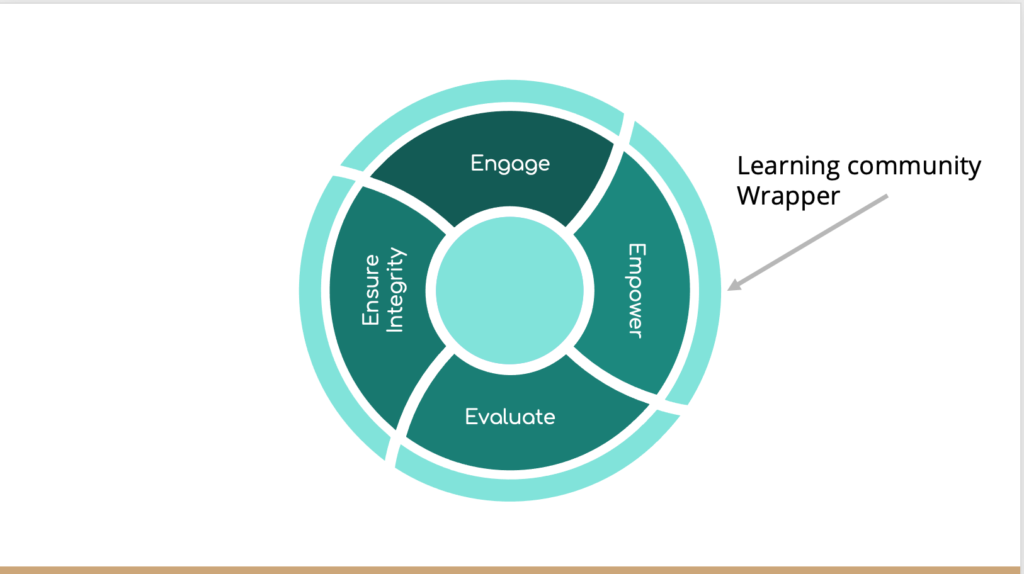
INTRODUCTION
The E4 framework is not limited to HyFlex teaching and learning. Helping HyFlex teachers was the motivation to create a framework that
would guide the creation of dynamic, student-centered assessments instead of static, single, environment assessments. E4 supports HyFlex learning enviro
nments in which students may participate in multiple modes online or in-person. The framework has four guiding principles: Engagement, Empowerment, Evaluatio
n, and Ensuring Integrity (E4). Consider these principles during the design of authentic, student-centered assessments that flow acros
s all HyFlex participation modes. Going forward, the principles are written in the form of verbs – to act.
BACKSTORY
• I knew I wanted to define a framework for designing assessments that supports the values of HyFlex learning. In addition, it needed to address challenges to designing
teaching and learning experiences in HyFlex classrooms. Note that some challenges and solutions are similar.
• Assessment needs to be equitable across multiple learning modes. Equivalence is a HyFlex principle or value.
• Assessment creation
needs to be efficient and effective (time, quality, integrity). HyFlex is essentially quality design. Quality design is effective. Quality design for HyFle
x environments requires time.
• Assessment needs to address the teacher perception that HyFlex assessment
may be less rigorous or vulnerable to cheating in some settings and formats. This perception primarily is regarding online
asynchronous learning.
• Assessment ideally should be part of a unified classroom experience (learning community) rather than different for each mode. Learning communities c
an contribute to increased persistence and retention, higher grades, increased engagement and involvement, and provide support systems.
• Assessment should pro
mote autonomy or self-reliance to permit learne
rs’ ability to take advantage of choice. Autonomy and self-reliance also boost self-esteem and resilience.
I attempted to create the framework in the past. However, the list of contributing theories was too large. I realized, that like HyFlex adoption, starting somewhere, starting small, was better than not starting. That is when I scrapped the Adaptive Assessment Framework (AAF) and began work on the E4 framework.
Below is an video overview of the E4 assessment principles. I invite community feedback, questions, and suggestions regarding the E4 framework. The next post in this series is the topic, Why we need another framework?
Author
-

Recently retired from the LCTCS. Served as the Dean of Global Online at Fletcher TCC and Dean of DLIT at Delgado CC. Is a HyFlex Learning Community Advisor and a freelance ID.
View all posts